COVID-19 resulted in the world’s biggest lockdown, to try and contain the outbreak. Economies went into a standstill. Bellwether companies are withholding full-year revenue forecast, suggesting an uncertain business climate. Millions are losing their jobs — all these sound like the perfect recipe for disaster in an economy driven by services. Yet, one segment within India’s vast services sector is hopeful and optimistic.
Co-working operators are betting on a resurgence in demand for co-working spaces as the economy emerges out of one of the strictest stay-at-home measures anywhere in the world. The sector sees demand for flexible workspaces rising as companies embrace social distancing as part of their work culture. That may see them adopting measures to maintain social/physical distancing among employees, with desks expected to be set apart by around 80-100 sq. ft. going forward from about 50-60 sq. ft. earmarked currently — the result: corporates leasing more office spaces.
Big IT giants are allowing some of the staff to work from home even after the economy is unlocked. Others may be open to exploring the ‘Work Near Home’ policy, while many companies may consider leasing smaller spaces at different locations instead of absorbing large areas. These trends will immensely benefit the co-working segment as it is in the best position to cater to such flexible demands.
Although co-working operators have for now-abandoned plans to aggressively expand their presence in major cities and penetrate smaller tier-II and tier-III cities, things may turn a corner.
The overall office space demand remained muted during April-May, as corporates deferred their decision to set up new offices or expand. Property consultants have estimated that net leasing of office space across seven major cities could drop anywhere between 30 million sq. ft. and 40 million sq. ft. this calendar year from nearly 50 million sq ft in 2019. The pandemic also put a brake on the co-working segment’s growth, with many facing a crunch in meeting rental commitments, while many clients seek full or part waivers and deferment of rents.
Still, incoming data suggests a pick up even if it’s not a quick turnaround. Key aspects that will favor this segment post-COVID-19 apart from the top-class facility management is the de-densification and demand from enterprises for multiple office spaces instead of one. The non-negotiable preventive measures will take center stage. The level of hygiene and other safety measures adopted in the co-working centres will help attract businesses. The industry believes members are likely to return to them once the pandemic passes. More importantly, people that weren’t previously exposed to co-working before the pandemic will likely turn to it as a permanent solution to support new working models and corporate policies.
There are already 1,000 operational co-working centres, with over 400,000 seats, across the top six cities – Delhi-NCR, Bengaluru, Mumbai, Pune, Hyderabad, and Chennai. The number of flexible space operators has risen from single digits to about 350 over the last 3-4 years.
The co-working segment will ride out this crisis, for the work will continue, and people will need to have their water-cooler conversations back at the office!



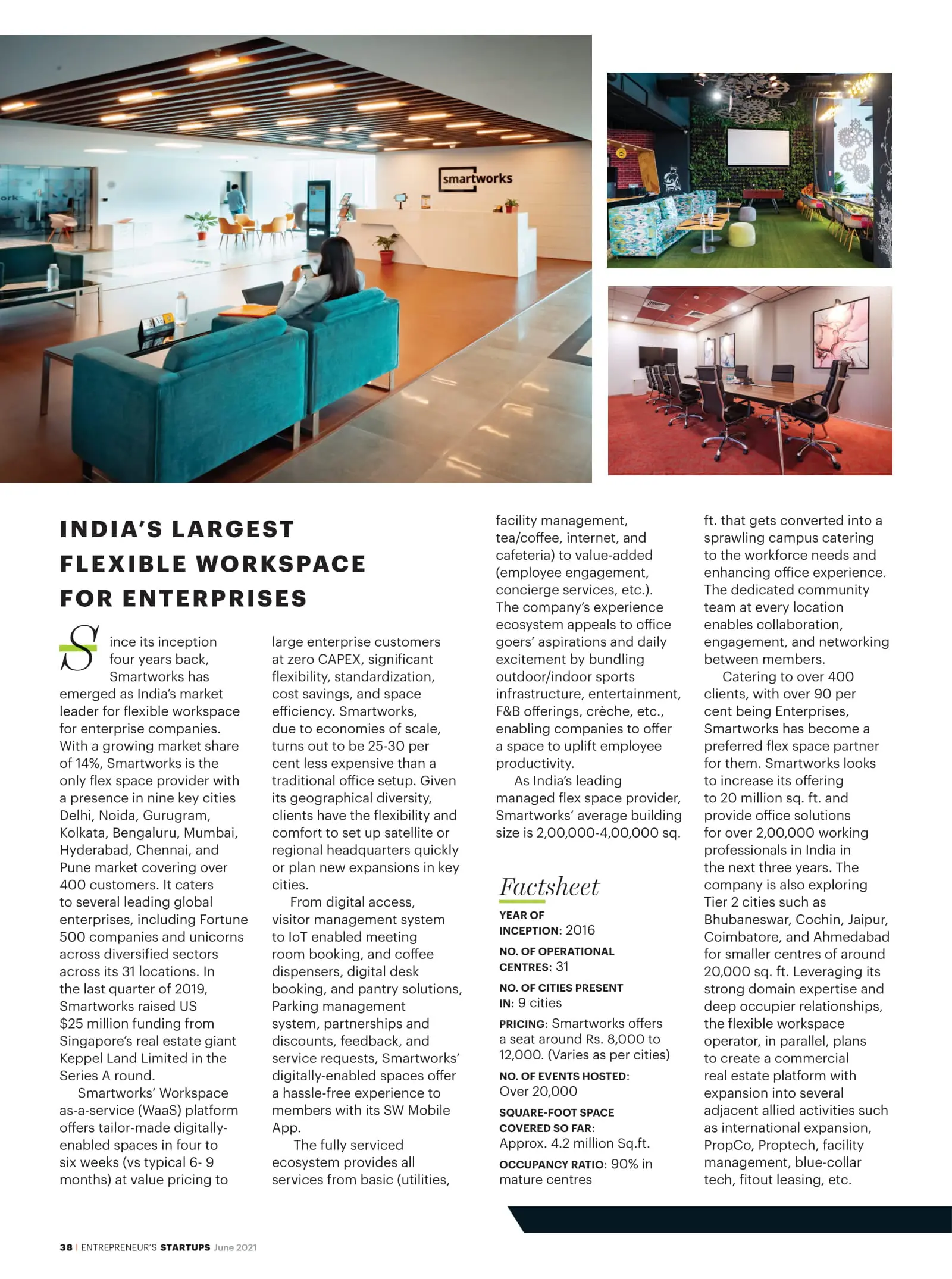





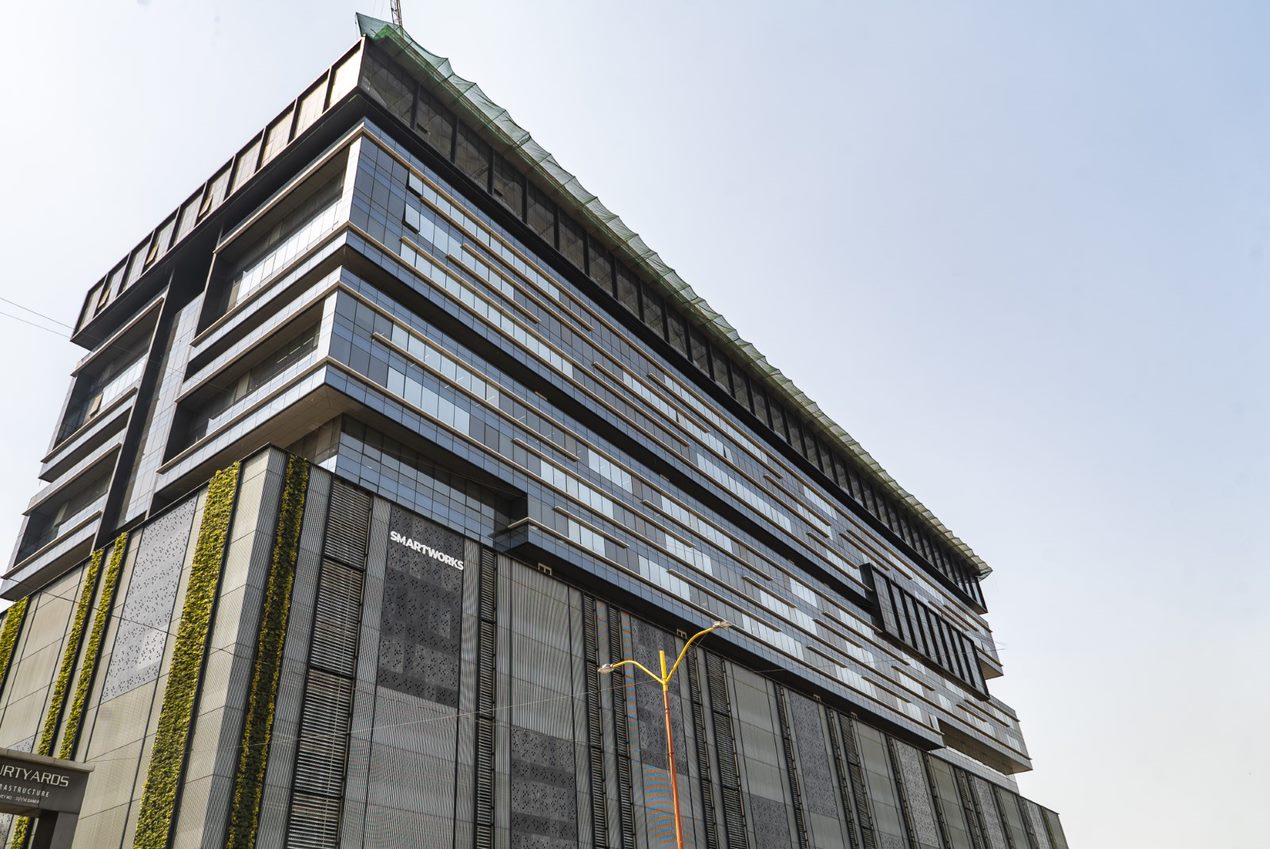


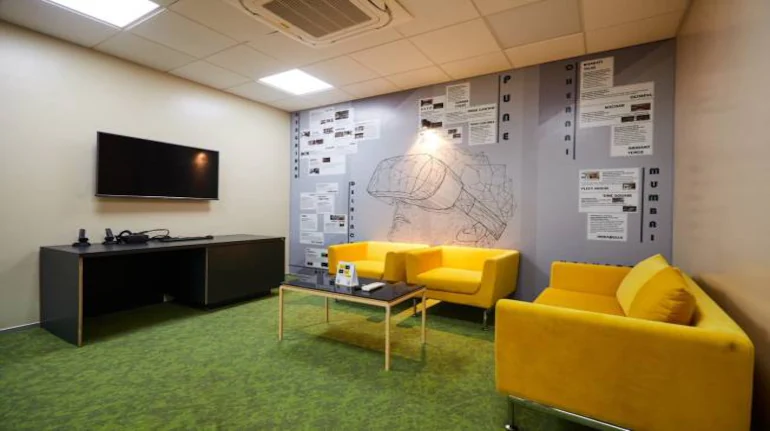
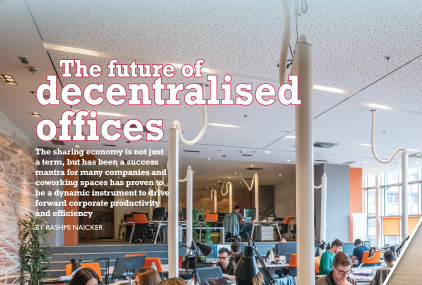



.jpg)



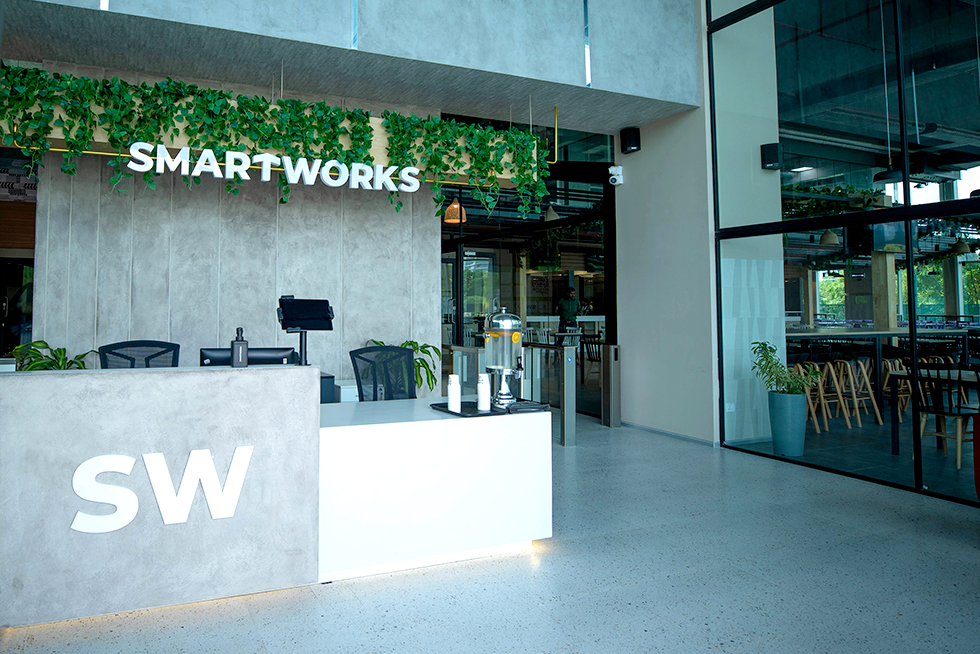
.webp)




(1).jpg)

.png)
